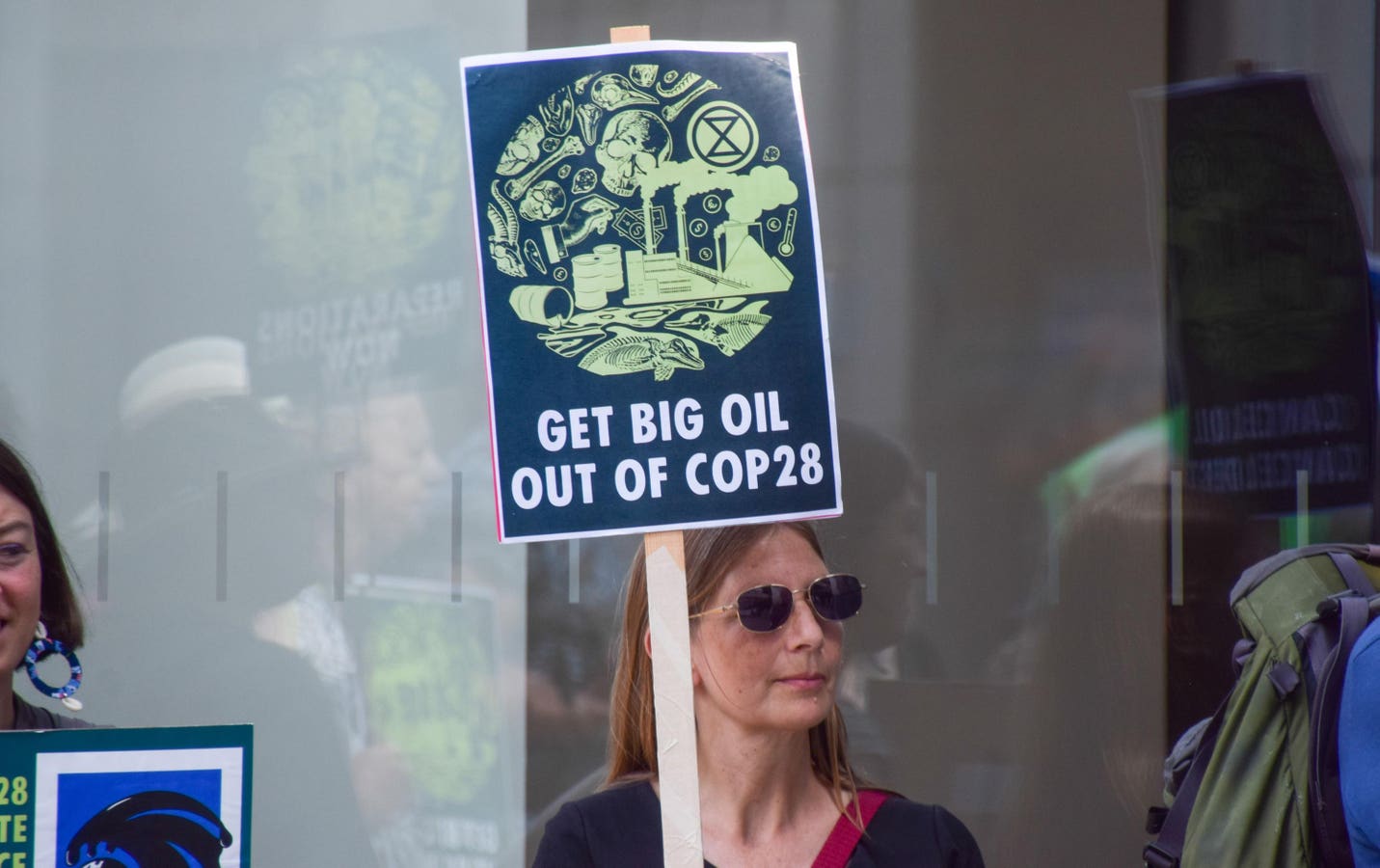The oil and gas industry will bring a simple but reasonable message to COP28 in Abu Dhabi later this month: the world should focus on reducing greenhouse gas emissions, not fossil fuel production – until the global economy no longer runs on it.
With a leading member of the Organization of the Petroleum Exporting Countries (OPEC) cartel, the United Arab Emirates, hosting the international climate summit, and Sultan al-Jaber, the CEO of Abu Dhabi National Oil Co. (Adnoc), one of the world’s largest oil companies, serving as COP28 president, the industry should have a chance to have its message heard when the annual U.N. climate summit kicks off November 30.
That message includes a promise to reduce carbon dioxide (CO2) and methane emissions from oil and gas operations as quickly as possible by scaling up technologies like carbon capture and storage (CCS) and direct air capture (DAC).
The industry has been a leader in the development of technologies to remove greenhouse gas emissions from oil and gas production in recent years – to the extent that CCS and DAC now serve as the foundation for the energy transition strategies of some of the biggest international energy companies, including Exxon Mobil, Chevron
CVX
The message is predicated on the consensus that oil and gas will remain in demand for decades. It doesn’t matter whose forecast you look at or whether you believe that demand for all fossil fuels will peak by 2030 as the Paris-based International Energy Agency (IEA) does or if you think global oil demand will keep growing until 2045 as the members of OPEC do.
Regardless of when it occurs, all agree that the “peak” for demand will be more like a long plateau rather than an abrupt displacement. Even the IEA expects demand for oil and other hydrocarbon liquids to be 102.1 million barrels a day in 2050 – or about where it is today – under its State Policies scenario. That view might surprise some climate policy watchers, considering the IEA’s alleged anti-fossil fuel bias following the publication of its Net Zero by 2050 two years ago.
The industry will also promote using nature-based solutions at COP28, since everyone agrees that some sectors of the global economy, like aviation, maritime, and heavy industries like steel and cement, will be difficult to decarbonize through electrification. These solutions involve conserving, restoring, or better managing ecosystems to remove CO2 from the atmosphere. Examples include allowing forests to regrow and restoring coastal wetlands.
Even with the Ukraine war – and now the Israel-Hamas conflict in the Middle East – pushing energy supply to the top of the global political agenda, the industry’s message is likely to meet opposition in Abu Dhabi from climate activists, especially from Europe and possibly the Biden administration.
This faction will once again push for language in the COP final communique calling for the “phaseout of fossil fuels.” But even a proposal to “phase down” fossil fuel consumption won support from only about 80 countries of the roughly 170 participants at last year’s COP27 in Egypt, and proposals must be approved unanimously to pass.
Given mounting energy security challenges, seeing support for such language wane this year would not be surprising. Even the Biden administration has been cagey about getting behind a “phaseout” with the 2024 presidential election cycle ramping up and the White House concerned about inflation and the impact of high gasoline prices on the U.S. economy.
The oil industry’s message – that they will clean up their operations, but they will continue to meet demand if it continues to exist – is likely to spur serious controversy.
The industry is committing to eliminating its emissions from production and refining – known as Scope 1 and Scope 2 emissions – but not those generated by consumers. These Scope 3 emissions, caused, for instance, by tailpipe exhaust from gasoline- or diesel-powered automobiles, are out of the industry’s purview. The industry believes it is the role of governments to shift these demand patterns through policy.
That seems like a fair deal because decisions about the pace and trajectory of the energy transition will differ from country to country. After all, it would not be fair to tell poor countries like Guyana or Namibia that they can’t develop their newly discovered vast oil reserves – which could be game changers for their economies – when global demand for this oil remains robust.
Likewise, it would be unfair to force developing countries to take automobiles with internal combustion engines off the road and force them to buy more expensive electric vehicles.
It’s not the oil and gas industry’s job to change consumer habits – that’s on policymakers. And that’s the message it hopes to convey in Abu Dhabi at COP28.
Read the full article here





